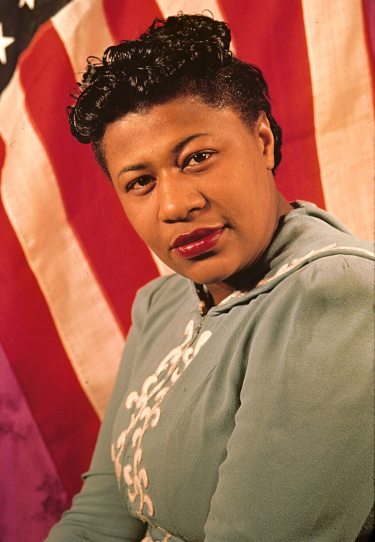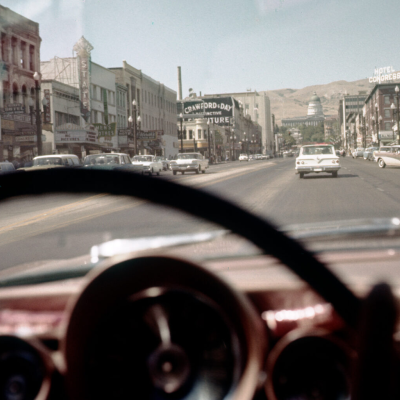Reminiscing in Tempo
*
Memories and Opinion
_____
“Reminiscing in Tempo” is part of a continuing effort to provide Jerry Jazz Musician readers with unique forms of “edu-tainment.” Every month (or as often as possible), Jerry Jazz Musician poses one question via e mail to a small number of prominent and diverse people. The question is designed to provoke a lively response that will potentially include the memories and/or opinion of those solicited.
Since it is not possible to know who will answer the question, the diversity of the participants will often depend on factors beyond the control of the publisher. The responses from the people who chose to participate in this edition are published below with only minor stylistic editing. No follow-up questions take place.
_____
What are four or five of the the most romantic tunes ever recorded?
Originally published February, 2007
Here’s my list, although I would be hesitant to say that they are some of “the most romantic tunes ever recorded”……………….Anyway I like the feelings they evoke…………
My Man– Billie Holiday
Lonely Woman – Ornette Coleman
My Romance – as performed by Luba Rashiek on my album “Jam For Your Life”
Femme Fatale – Art Ensemble of Chicago on our album “Coming Home Jamaica ”
I grew up in Detroit listening to the great singers of that time and heard many romantic songs. The one’s that I remember most fondly are as follows:
1. What A Difference A Day Makes, (by Dinah Washington)
2. Teach Me Tonight, (by Red Garland)
3. My Funny Valentine, (by Chet Baker)
4. Body And Soul, (by Coleman Hawkins)
And last but not least John Coltrane’s Naima. I actually had the great good fortune to meet her shortly after moving to NYC. She was an amazing woman, filled with loving compassion and uncommon spiritual depth.
*
(Song versions chosen by the publisher)
Crepuscule With Nellie, by Thelonious Monk
Butterfly, by Herbie Hancock
You Taught My Heart to Sing, by McCoy Tyner
Just For A Thrill, by Lil Hardin Armstrong
_____________________
Billie Holiday — “Violets For Your Furs,” on Lady in Satin, Columbia (1957)
– Billie Holiday’s greatest gift was taking ownership of a composition through her highly personalized interpretation. One of the final recordings in Holiday’s illustrious career, she is surrounded by the masterful J.J. Johnson as well as a lush bed of string accompaniment arranged by Ray Ellis. Though she specialized in expressing melancholy do an unparalleled level, Billie Holiday’s understanding of romance was also spectacular.
Ben Webster — “How Long Has This Been Going On?,” on Ben/Sweets, Columbia (1962)
– Rumor has it that when the great musician Benny Carter was in his last days, he exclaimed, “Bring me some Ben!” With an airy tone, large vibrato and a masculine interpretation, Webster’s style is unique because he combines the delicate with the rough simultaneously. Not surprisingly, Milt Hinton once told me that Webster preferred aggressive foreplay before making sweet love to a woman. This recording is the perfect example of Webster’s ballad style. He is clearly a man who understood the complexities of romance and was able to translate this understanding into beautiful music.
Charlie Parker — “April In Paris,” from Bird with Strings on Verve, (1952)
– That Charlie Parker was able to think at such an extremely high level at any tempo is one of the great marvels of improvisation-based music. An intellect of the highest order, Parker savored the opportunity to be featured with an “orchestral” accompaniment. This song is important not only for it’s romantic nature, but also because Parker was able to incorporate his unique style to a standard composition without sacrificing its beauty.
Branford Marsalis — ” The Peacocks,” from Renaissance, on Columbia, (1986)
– Though I was reticent to include an artist from the new generation, Branford Marsalis’ interpretation of this seldom played gem is the essence of romance. Accompanied by Herbie Hancock and Buster Williams, this song slowly unfolds, displaying gentle reflection and poignant contemplation. More akin to an operatic or symphonic movement than a jazz tune, Marsalis takes his time and gets the job done right!
Shirley Horn — “The Music That Makes Me Dance” from You Won’t Forget Me, on Verve (1991)
– Shirley Horn was a master of the rubato ballad. Her piano accompaniment perfectly complements her soft, delicate vocal delivery, while each solo exhibits yet another dimension of her mastery of romantic musings. While the lyrics speak of music that makes one dance, the delivery evokes feelings of passionate bedroom activity in the twilight hour first and foremost.
” My Funny Valentine” — Miles Davis, Columbia; also version with Horace Silver on Blue Note
” Since I Fell For You,” Kenny Dorham, trumpet, with his vocal
“Don’t Explain,” Billie Holiday, with Lester Young & Co. [also “Good Morning, Heartache” studio sessions]
“‘Round Midnight,” Coltrane on Prestige, extended version
“Lush Life” Sarah Vaughn [Coltrane’s ” Lush Life” on Prestige, extended version]
(I could go on but I won’t…)
I Can’t Get Started – Charlie Parker (with strings)
Autumn In New York – Chet Baker
This is a difficult question, sometimes it is the artist that makes the song work and sometimes it is just a wonderful song, but here are a few that I thought of ;
Here’s To Life, (by Shirley Horn)
I’ll Keep Loving You, (by Bud Powell)
The First Time Ever I Saw Your Face, (by Roberta Flack)
I Only Know, (by Dinah Washington)
I’m Glad There Is You, (by Sarah Vaughan)
*
(Song versions chosen by the publisher)
_________________
Maybe romance, like beauty, is in the eye of the beholder, if you get my drift. It’s such a personal thing. All that saying goodbye, all that rushing to be in the arms of the one you love, all that wishful thinking, dreaming, hoping. I like Carole’s romantic insecurity and need to know the answer to her question ( Carole King “Will You Still Love Me Tomorrow). Every time Ella says goodbye, I die a little, too ( Ev’ry Time We Say Goodbye (Ella Fitzgerald ). When Whitney opens her throat and tells me she will always love me, the hairs stand up on the back of my neck. ( Whitney Houston: I Will Always Love You). Unbearably romantic also is Leonard Bernstein’s “Somewhere” from West Side Story, although my favourite version of that is the lyric-less Cannonball Adderley club recording that I once heard. The lovesick Sinead O’Connor singing to her incomparable lover in Prince’s song is hard to beat, too. ( Sinead O’Connor: Nothing Compares 2 U).
I will be very spontaneous and say ” How Deep Is The Ocean?” (Bill Evans); “The Very Thought Of You” (Nat King Cole); “For All We Know” (Dave Brubeck — with Paul Desmond); ” My Romance” (Ben Webster); and “My Foolish Heart” (Gene Ammons).
*
(Song versions chosen by the publisher)
____________
I love songs that have lyrics with great vivd imagery, that evoke emotions and memories.
For me the songs I have selected are beautiful and timeless every time I hear or play them.
Prelude To A Kiss — Duke Ellington
In A Sentimental Mood — Duke Ellington (with John Coltrane)
Autumn Serenade — Johnny Hartman







































